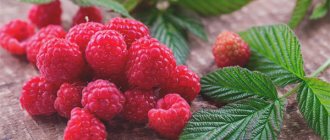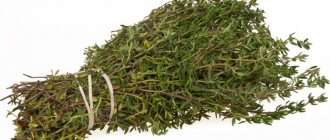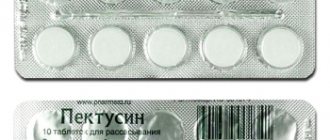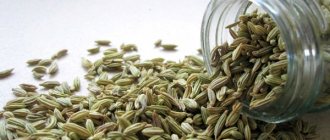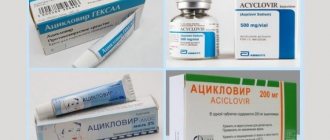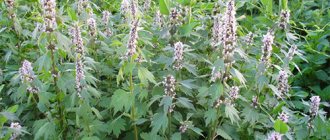Benefits of fennel for children
Fennel is a herbaceous plant that looks like dill. Mentions of its use are found in the recipes of Avicenna, Hippocrates, and Dioscorides.
The beneficial properties of fennel are due to its composition. The fruits contain about 7% essential oil, as well as a large amount of vitamins B, C, PP, E.
Fennel is used for gastrointestinal diseases accompanied by spasms and colic, and also as an expectorant and diuretic.
Preparations made from this plant are used for:
- increased secretion of the digestive tract;
- improved appetite;
- normalization of the gastrointestinal tract;
- relieving muscle spasms of the intestines and stomach.
In folk medicine, the herb is used as a sedative, analgesic, choleretic and carminative. In addition, fennel tea helps cope with colic and bloating that affects newborns.
The fact is that the digestive system of infants has not yet fully adapted to the new conditions, so in the first months the baby is bothered by unpleasant sensations. For proper functioning of the intestines, beneficial microflora is necessary, the colonization of which occurs gradually. Often harmful microorganisms enter the body, causing fermentation and interfering with the normal digestion process.
Colic is common in infants between 2 weeks and 4 months of age. Occurs in 30% of children. Only in 5% are the cause of an organic disease; in other cases, their course is associated with the development of the digestive system.
Colic causes severe tummy pain in babies, but does not pose a serious danger.
Video: beneficial properties of the plant
Popular fennel teas
In stores you can find ready-made tea mixtures with the addition of a plant for brewing (loose or in bags). Before purchasing a drink, you should visit your pediatrician. It will help determine the dosage and frequency of taking tea. And at the same time check whether the child has an individual intolerance to the ingredients.
Fennel for colic in newborns is sold as a special baby product that has passed quality checks during the production process. The highest quality products are manufactured by brands:
- Hipp;
- Bebivita;
- Heinz;
- Babushkino Lukoshko;
- Fleur Alpine.
To prepare a drink from ready-made raw materials, it will take only 10-15 minutes (including cooling). The tea can be made from crushed leaves, seeds or roots of the plant, the composition is indicated on the back of the package.
The average cost of the finished product is 100 rubles. per pack of 20 g (packaged), 200-300 rubles. for 200 g (loose).
Many manufacturers produce children's teas with fennel
How to prepare products - proven recipes
Popularly, fennel is called “pharmacy dill.” Infusions and decoctions are prepared from seeds or herbs, which help reduce gas formation and colic. Their use, as a rule, does not cause any side effects and within a few minutes the baby’s condition improves.
Seed infusion
Ingredients:
- fennel seeds;
- a glass of boiling water.
Preparation:
- The seeds must be ground in a coffee grinder and take a teaspoon of the resulting mass.
- Then pour a glass of boiling water over the fennel.
- The tea should sit for 25–30 minutes. After which it should be filtered and cooled to a comfortable temperature.
The infusion can be given after each feeding in small portions.
Fennel infusion relieves spasms and calms the baby
Herbal tea for colic
Ingredients:
- fresh or dried fennel - 1 tbsp. l.;
- boiling water - 250 ml.
Preparation:
- The required amount of herb is brewed with a glass of boiling water and left for half an hour.
- Then the liquid is filtered.
Ready-made tea is given to the baby between feedings no more than 1 tbsp. l. The daily dose should not exceed 50 ml. Used to strengthen the immune system and nervous system, and relieve colic.
When creating pharmaceutical dill water, sweet fennel essential oil is used, obtained by steam distillation followed by concentration
Decoction for infants
Ingredients:
- plant seeds - 1 tbsp. l.;
- water - 0.5 l.
Preparation:
- Pour the herb with water and cook over low heat for about 25–30 minutes.
- We filter the resulting product.
The finished composition is used to wipe the skin for diaper rash and rashes.
The product is also used in folk medicine for minor purulent discharge from the eyes. Use a cotton swab dipped in the solution to wipe the child’s eyelids. In addition, the baby is bathed in water with the addition of fennel tea for skin rashes and diaper rash.
To prepare dill water, any part of fennel is suitable, which should be poured with boiling water, infused and used for its intended purpose.
DIY tea making methods
If you wish, you can make your own tea. To do this, you will need to purchase seeds or dried crushed parts of the plant at the pharmacy. And be sure to follow the preparation algorithms and dosage for further consumption of the drink. There are several simple ways to brew fennel. You just need to use one of the simple recipes:
- classic tea - pour 1 teaspoon of fennel into 250 ml of boiling water, let it brew for 15 minutes, and then drink in 3 doses (morning, lunch and evening);
- decoction - 2 tablespoons of raw materials, pour 250 ml of boiling water, boil in a water bath for 15 minutes and let it brew for 45 minutes, then strain, dilute with clean water (up to 350 ml) and drink in portions of 50 ml 2-3 times a day;
- herbal mixture - classic tea is supplemented with medicinal herbs: mint, anise, coltsfoot, sage, thyme, etc., enhancing the medicinal properties of the drink;
- dill water – add 1 drop of fennel seed essential oil to 1 liter of boiled, cooled water, mix thoroughly, and then drink for 30 days (store in the refrigerator, heat in a water bath before use).
Adults can prepare a cocktail from chopped parsley leaves (15 g), peppermint (15 g). buckthorn bark (45 g), fennel root (20 g). The mixture is poured with 250 ml of boiling water and infused for 15 minutes. You should drink 50 g in portions in the morning on an empty stomach. The ingredients can be found at any pharmacy.
Permissible dosage of the drink
Before giving fennel to your baby, you should definitely consult with your pediatrician regarding the dosage and regularity of its consumption. Since exceeding the norm can result in aggravation of health problems in the child. Doctors usually recommend drinking no more than 50 ml of tea at one time. No more than 3 times a day for a week. And then take short breaks and include it again in the baby’s diet if colic or intestinal disorders occur. A more precise dosage is determined individually, depending on the baby’s health condition.
For the first time, fennel tea should be given to the baby to try in small quantities - 1 teaspoon. Then you will need to monitor the body's reaction to the new product. If no abnormalities (temperature, rash, swelling, etc.) are detected, it can be used to get rid of colic. Otherwise you will have to abstain from it.
Fennel tea has a wide range of beneficial properties, while being practically harmless to the child’s body. That is why it is used by young mothers to relieve children from colic, constipation and other digestive problems. Preparing the drink takes about 15 minutes, but it must be consumed taking into account the recommended norms, otherwise the disease may only worsen.
Pharmaceutical preparations based on fennel
The pharmacy chain sells ready-made “dill water” prepared from fennel essential oil. In addition to the fact that it helps relieve intestinal spasms, improves the baby’s digestion, it has antimicrobial properties, and also contains useful microelements and vitamins for the child’s body. Sold in 100 ml bottles, stored for up to 30 days.
The pharmaceutical industry offers tea in granules or bags, as well as a fennel-based drug - Plantex. They can be used from the first day of a baby’s life. There are no flavorings or dyes in the composition. The dosage and method of preparation are indicated on the packaging.
Photo gallery: drugs for newborns
Fennel tea in granules is made from natural raw materials and is suitable for babies from the first week of life.
Plantex is used for the treatment and prevention of spastic pain in the intestines during the transition from breastfeeding to breastfeeding in newborns and older children
Pharmaceutical dill water is a solution consisting of water and fennel essential oil.
Before giving your baby fennel-based products, you should definitely consult your pediatrician.
Preparations that contain lactobacilli and probiotics
Many pediatricians recommend the use of so-called probiotics to more quickly relieve colic in a baby. These are drugs that contain several groups of microorganisms (mainly lactobacilli), in combination with substances that accelerate the process of normalizing the composition of the natural intestinal microflora. Such drops can be used not only for digestive disorders in the form of intestinal spasms, but also in the recovery period after infectious diseases, antibiotic treatment, and food poisoning.
An anti-colic mixture in the form of antispasmodics, herbal remedies and probiotics most often turns out to be the most effective in combating such unpleasant phenomena.
Bifidumbacterin for colic in newborns is a drug containing a high concentration of bifidobacteria. These microorganisms suppress pathogenic intestinal microflora, which improves intestinal functions (absorption and digestion), and also reduces the degree of gas formation in the gastrointestinal tract. The drug must be given to the baby in dissolved form several times a day. A pediatrician can prescribe such a remedy for both therapeutic and preventive purposes for children at risk, almost from birth.
Features of application
In the first days of taking any of the chosen remedies should be given very carefully - only 1 tsp. in a day. It is necessary to check how the child’s body reacts to the drug; if there are no unpleasant manifestations, the dosage is increased.
The tea has a pleasant sweetish taste, and kids take it without problems. Newborns are given it 3 times a day, 1 tsp. in between feedings. Infants - up to 6 times a day. The prepared solution can be given in a teaspoon or added to breast milk for children up to one year old.
It should be remembered that the dosage of pharmaceutical drugs differs from the composition prepared at home. Therefore, before giving tea to your baby, you must carefully study the instructions.
The decoction can be stored in the refrigerator for up to three days. Newborns should be given only freshly prepared solution.
Regular dill can also help cope with colic. Its seeds are also rich in minerals and vitamins, which are beneficial for the child's body. It differs from fennel in the composition of essential oils. While dill also helps with intestinal immaturity and excessive gas in babies, fennel is better for tummy cramps and bloating.
It is worth considering that it is impossible to guarantee 100% relief from unpleasant symptoms. In addition, the effect of using dill water may be short-lived. Therefore, parents should closely monitor the baby’s condition in order to take appropriate measures and alleviate his condition if necessary.
It is not recommended to give alcohol-containing products (tinctures) to children; preference should be given to decoctions and infusions.
Contraindications and possible side effects
Although dill water is well tolerated by children, in some cases adverse reactions are possible in the form of:
- skin rash;
- redness.
Allergic reactions may not appear immediately, but only on the 4th or 5th day. To track the child’s reaction, a young mother should not rush and introduce new foods into the diet.
Contraindications to taking fennel-based tea are individual intolerance to the drug. If any allergic reactions occur, you should immediately stop using the drug and consult a doctor for advice.
Is it possible for newborns, infants and babies after one year to have fresh spice?
Fresh fennel, being a spice, contains a large amount of essential oils that can irritate the mucous membrane of a fragile children's digestive tract. For this reason, doctors prohibit giving fresh fennel to newborn babies.
However, you can give fennel tea or decoction to babies: in this form, the spice is absolutely safe and is used in the treatment of digestive problems in babies and infants.
From 7-8 months, fennel root can be gradually introduced into the diet, but only in heat-treated form. Fennel is usually added to children's soups. Only from 1.5 years old can you gradually introduce fresh herbs and the root of this plant into the diet.
Is it possible to use decoction, fruits and tea?
Starting from two weeks of age, to eliminate gas formation and colic, it is allowed to introduce teas and decoctions based on seeds, herbs and fruits of this plant into the child’s diet.
Fresh fennel fruits (root) should not be introduced into the diet of young children. Only starting from 8 months is it allowed to be added to first and second courses in processed form in small quantities.
We wrote about in what form and how fennel can be given to newborns in this article.
